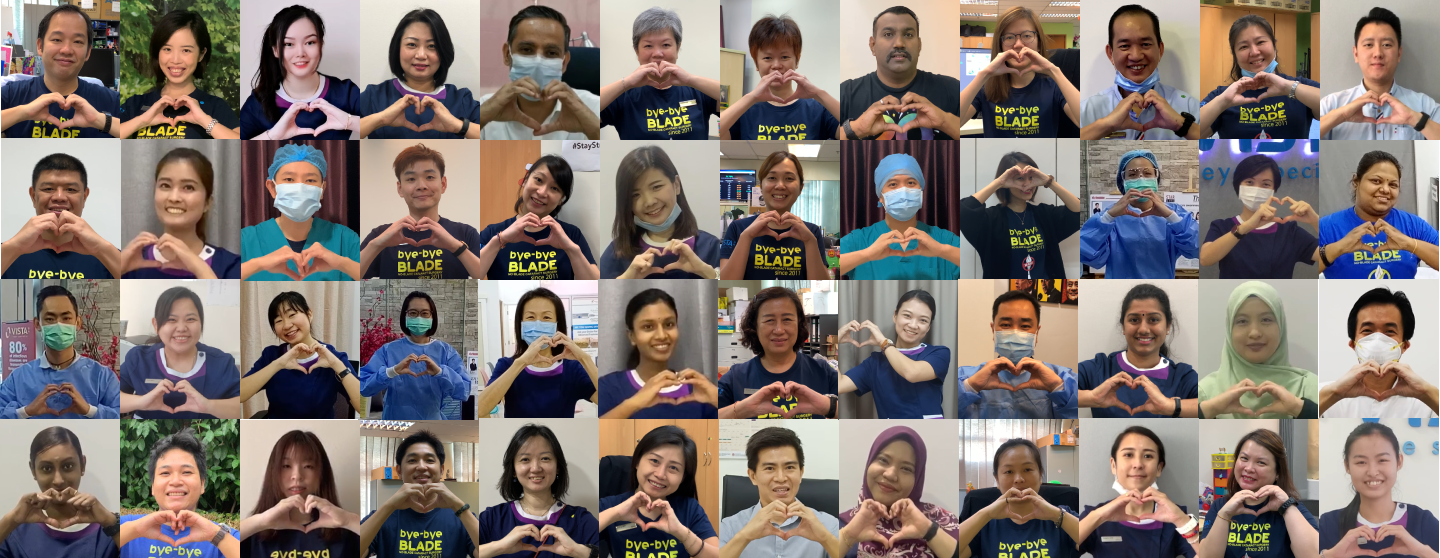



VISTA Eye Specialist

Selangor, Malaysia
August 2023
Medical & dental practice
Service with Significant Environmental Footprint
Malaysia
Founded in 1999 by a patient who had to fly overseas to receive the transformational impact of LASIK himself, VISTA Eye Specialist started off as a LASIK center to help change the lives of people in Malaysia through their vision. VISTA has since expanded its repertoire of services that bring the same hope for patients - offering the best eyecare technology to patients in need of Cataract surgery through the use of Femtosecond Laser Assisted Cataract Surgery, to helping Kids fight the Myopia Pandemic, and giving hope to patients suffering from Dry Eye Syndrome among others. Gradually, VISTA’s mission to change lives has gone beyond typical eye care, focusing on being a force for good and impacting the community. Through its dedication to provide for a supportive work environment for staff growth and fulfillment, delivering WOW once-in-a-lifetime experience for customers, collaborating with partners to grow the industry, introducing cutting-edge advancements in eye care, supporting the community and taking care of the environment, fighting preventable blindness and empowering children through their vision - VISTA's deepest aspiration is to ignite a profound transformation across the globe, leaving an indelibly positive mark on the lives of every single soul we reach out to.
Overall B Impact Score
Governance 10.2
Governance evaluates a company's overall mission, engagement around its social/environmental impact, ethics, and transparency. This section also evaluates the ability of a company to protect their mission and formally consider stakeholders in decision making through their corporate structure (e.g. benefit corporation) or corporate governing documents.
What is this? A company with an Impact Business Model is intentionally designed to create a specific positive outcome for one of its stakeholders - such as workers, community, environment, or customers.
Governance 10.2
Governance evaluates a company's overall mission, engagement around its social/environmental impact, ethics, and transparency. This section also evaluates the ability of a company to protect their mission and formally consider stakeholders in decision making through their corporate structure (e.g. benefit corporation) or corporate governing documents.
What is this? A company with an Impact Business Model is intentionally designed to create a specific positive outcome for one of its stakeholders - such as workers, community, environment, or customers.
Workers 25.4
Workers evaluates a company’s contributions to its employees’ financial security, health & safety, wellness, career development, and engagement & satisfaction. In addition, this section recognizes business models designed to benefit workers, such as companies that are at least 40% owned by non-executive employees and those that have workforce development programs to support individuals with barriers to employment.
Community 17.9
Community evaluates a company’s engagement with and impact on the communities in which it operates, hires from, and sources from. Topics include diversity, equity & inclusion, economic impact, civic engagement, charitable giving, and supply chain management. In addition, this section recognizes business models that are designed to address specific community-oriented problems, such as poverty alleviation through fair trade sourcing or distribution via microenterprises, producer cooperative models, locally focused economic development, and formal charitable giving commitments.
Environment 15.5
Environment evaluates a company’s overall environmental management practices as well as its impact on the air, climate, water, land, and biodiversity. This includes the direct impact of a company’s operations and, when applicable its supply chain and distribution channels. This section also recognizes companies with environmentally innovative production processes and those that sell products or services that have a positive environmental impact. Some examples might include products and services that create renewable energy, reduce consumption or waste, conserve land or wildlife, provide less toxic alternatives to the market, or educate people about environmental problems.
Customers 27.6
Customers evaluates a company’s stewardship of its customers through the quality of its products and services, ethical marketing, data privacy and security, and feedback channels. In addition, this section recognizes products or services that are designed to address a particular social problem for or through its customers, such as health or educational products, arts & media products, serving underserved customers/clients, and services that improve the social impact of other businesses or organizations.
What is this? A company with an Impact Business Model is intentionally designed to create a specific positive outcome for one of its stakeholders - such as workers, community, environment, or customers.